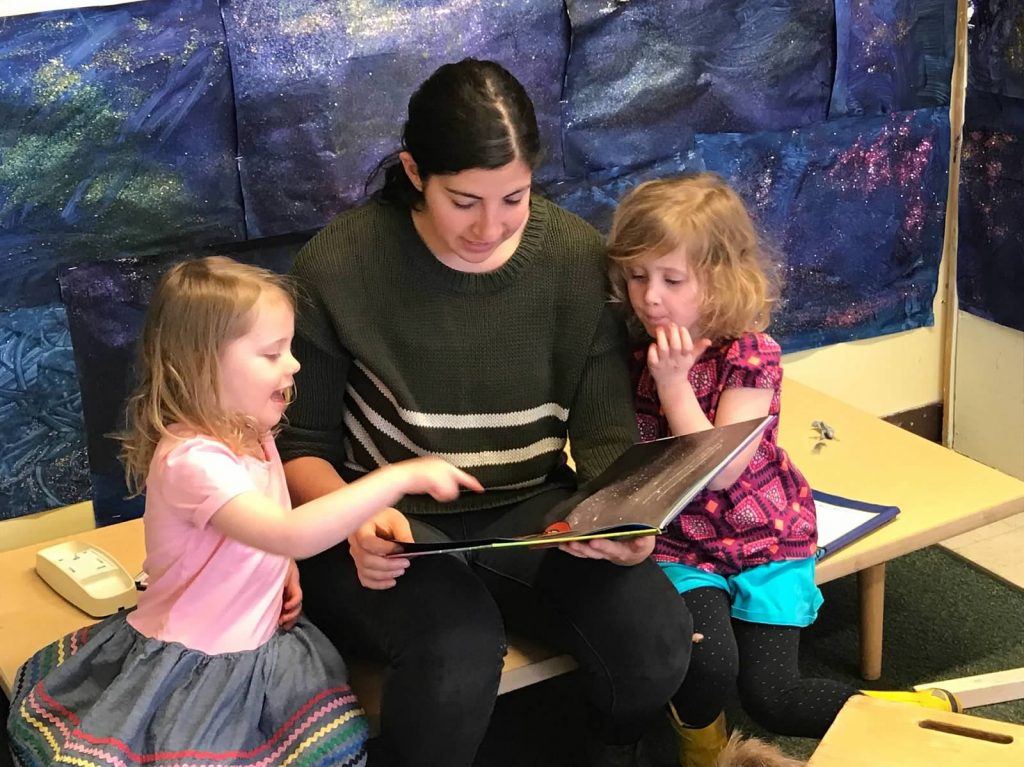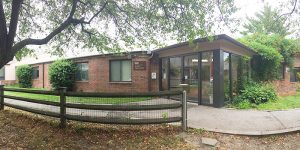
by Lily Samuel, MA Child Study and Human Development
Surrounded by art supplies, cars, a marble run and a toy kitchen, I could be anywhere in the world. The children who enter this particular room are cheerful and curious but sometimes also scared. Where am I? I’m in the “Nest,” a place for children displaced or fleeing from Syria, Iran, Afghanistan, Cameroon, Eritrea, and a dozen other countries. Some children arrive with families, some arrive alone.
I traveled to Lesvos, Greece, last summer to do what I do every day during the year at the Eliot-Pearson Children’s School: play with puzzles, pretend to eat wooden foods and mix water colors on paper. As a Wertlieb Fellow, I worked at a community center called One Happy Family (OHF), which serves over 1000 asylum seekers who have fled from violence, conflict, or disaster. It’s just three miles up the road from Moria and Kara Tepe refugee camps on this Greek island nine kilometers off the coast of Turkey where some refugees arrive by washing up onto the shore with nothing in their hands.
The Nest is a space just for the OHF children, ages 3 to 8. My role was to manage the space and ensure the play remained safe. I soon figured out, though, that my more important role was to act as a spirit guide to help the children travel from their real world into the world of fantasy play. This was not automatic. A child entering the Nest for the first time typically examined every object and then dropped it on the floor. Those who had been there before bee-lined for the puzzle or set of blocks they previously enjoyed to recreate their work. Many children walked around adrift, and then I’d invite them to join me in a project or I’d simply accompany them in parallel play.
As a preschool teacher, I know play—especially dramatic play—often requires planning: What will I create? What role will I play? Play itself is often the vehicle for children to ask even more important questions: Who will I be? Where do I belong? As Brian Sutton-Smith wrote, “If play prepares the future, it is by creating more vigorous, active children who find in their play a dream of confidence that they can also manage their fate” (Smith, 146).
When humanitarian aid is provided to refugee populations, children are often considered an extension of their parents: if food, water, shelter, and basic healthcare are provided, their needs are assumed to be satisfied. The need for a space where children can take ownership of their fates is not understood. The Nest offers this space. It was not designed to be clinically therapeutic so young people could “work through” their traumas. It is a space for children to play: where children can step fully into a fantasy world and take control within the safety of the Nest.
Lily Samuel just graduated with her MA and was a Graduate Assistant in the Eliot-Pearson Children’s School. Her graduate work focused on how policy affects developmental outcomes for immigrant and refugee families. Lily’s work with refugees in Lesvos, Greece was funded by the department’s Wertlieb Fellowship, and was the topic of her presentation at the 26th Annual Fred Rothbaum Student Presentation Day on April 5th, 2019

 ABOUT
ABOUT